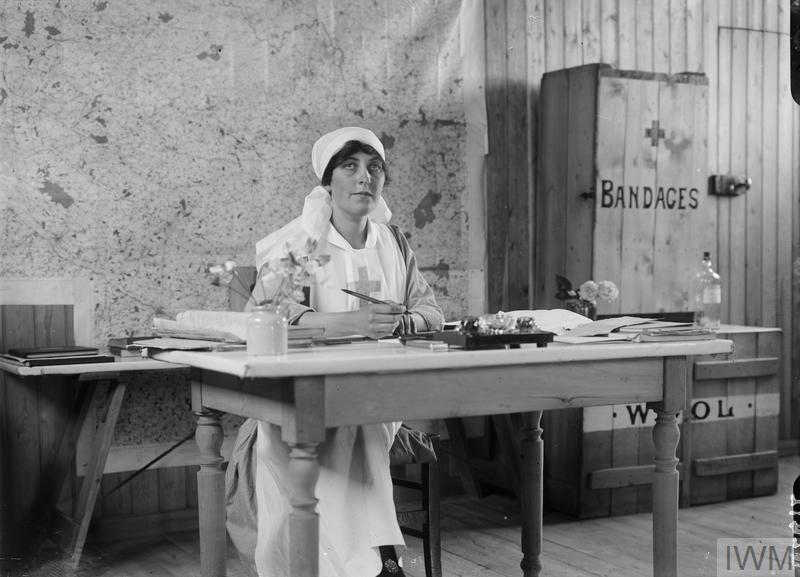Reviewed by Emma Hanna
In recent years, the wartime service of civilians near the battlefields of the Great War has been highlighted by histories of the organisations with whom they worked. Historians such as Geoffrey Reznick and Michael Snape have worked to explain how and why voluntary-aid organisations such as the Young Men’s Christian Association (YMCA) sought to care for servicemen’s well-being wherever they were fighting. The service of hundreds of men and women who worked along the lines of communication, in camps, ports, hospitals and by prisoner of war camps, should be more visible in the war’s histories. These workers fulfilled the roles which military authorities were unable or unwilling to do. They were proud to have shared similar dangers and deprivations to those bearing arms, although they were not permitted to wear any uniform or identifying insignia until late 1917.
Sandra Venn-Brown’s Red Cross Rose: An Aussie Civilian in France, 1916-1920 amply demonstrates how the narratives of individuals add invaluable granular details to organisational histories. Most books can be described as a labour of love but this one is especially so: the titular Red Cross Rose is Rose Venn-Brown, the author’s great aunt. The book charts the life and times of a woman from Sydney who had to fight to be granted permission to contribute to the war effort. She was the only Australian woman to serve in France, and she was the last to leave in 1919 after working with the Australian Graves Detachment of the Empire [Imperial] War Graves Commission in Villers-Bretonneux.
Sandra Venn-Brown never met her great-aunt, Rose. She admits that she had kept Rose’s ‘badly typed’ diaries with scribbled annotations and press clippings for decades before she realised the value of the documents. After Anzac Day in 2015, a chance conversation with her friend, the former minister and deputy Prime Minister Tim Fischer, inspired her to research her aunt’s war in depth. The quality of the research and writing of this book belies the author’s statement that she does not claim to be an historian. Red Cross Rose is a fascinating and impeccably researched history which takes the reader from Rose’s early years in pre-1914 Australia, via her pre-war work as a hospital administrator, to her determination to join the war effort, arriving in London in 1915, to her departure from France a year after the Armistice.
As a middle-class woman with an income, Rose was among a limited number of women who left to serve on the Western Front, the majority of whom were nurses. Rose was well-connected through her family, and throughout the war she proved herself an able administrator and networker. Red Cross Rose reads like a Who’s Who of the Great War, including Major Charles Bean and the actress Lena Ashwell who recruited Rose as the principal organiser for her YMCA-sponsored ‘Concerts at the Front’ which brought her into direct contact with a host of household names, but also the fascinating but still-neglected figure of the folk-dance instructor Daisy Caroline Daking, with whom Rose forged a close friendship. However, Rose was most proud of her work supporting the well-being of soldiers and labourers. When she left in 1919 she felt that she was ‘deserting the comrades who would never return.’
Red Cross Rose: An Aussie Civilian in France, 1916-1920 is a rich and welcome addition to the growing volume of books and articles that are being written on the vital work of civilians in battle areas. As Rose herself wrote in 1920, ‘I have not read any war books dealing with the various organisations at the Bases in France’, so her great niece’s work has successfully addressed this persistent lacuna. With 19 images and two informative maps, the fascinating details of the formidable Rose Venn-Brown’s war shines a brighter light on aspects of the war which continue to reward greater historical scrutiny.
Red Cross Rose: An Aussie Civilian in France, 1916-1920 by Sandra Venn-Brown (North Melbourne: Arcadia, 2021; 342pp; £22.99)
Dr Emma Hanna is a Lecturer in Modern British History at the University of Kent.
Image Credit: Women’s Services on the Western Front, 1914-1918, ©IWM Q 2472, Licence: IWM Non-Commercial Licence.

